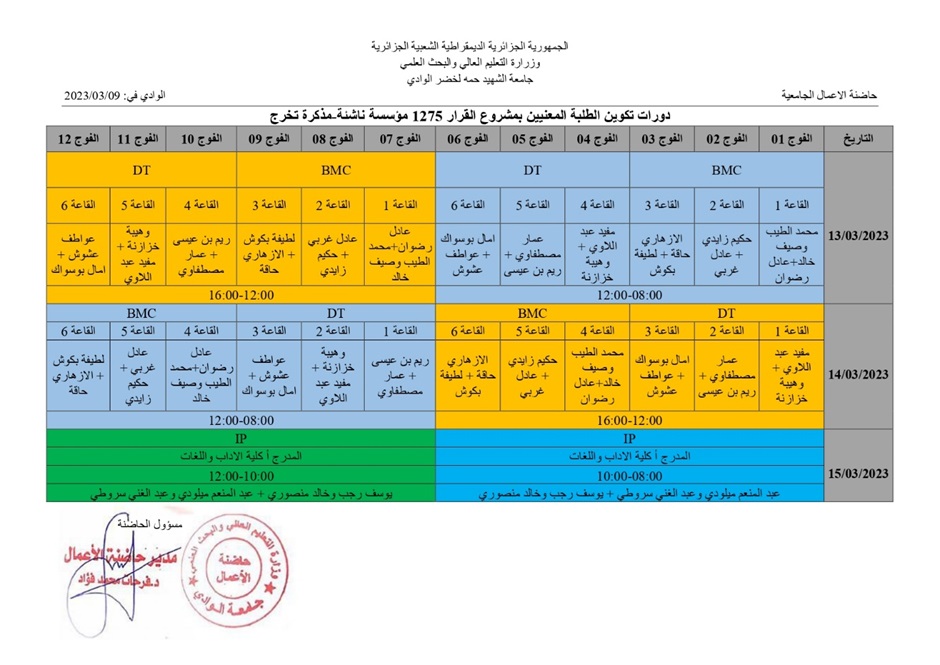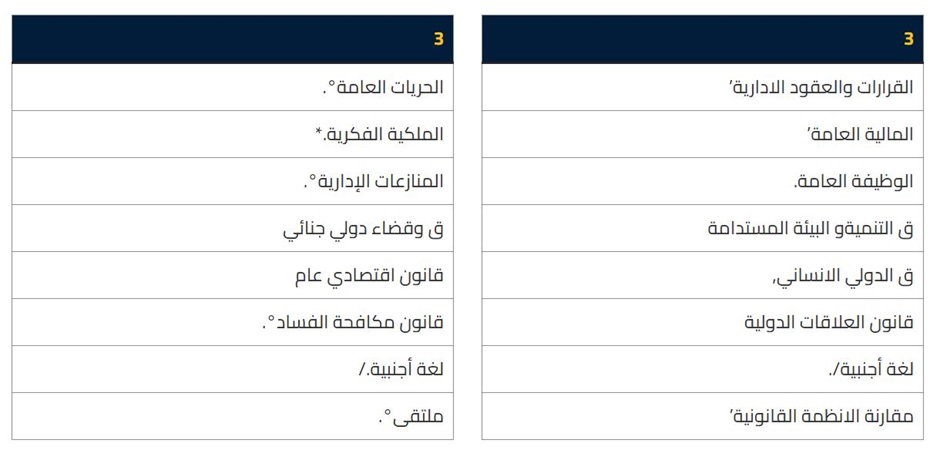17.4.2 “Education for SDGs specific courses on sustainability Have dedicated courses (full degrees, or electives) that address sustainability and the SDGs.”
The University of El Oued is steadfast in its dedication to integrating Sustainable Development Goals (SDGs) into its educational framework. Across all faculties and disciplines, the university actively incorporates the principles and objectives of the SDGs into curricula, research, and campus activities. This comprehensive approach ensures that students, regardless of their field of study, are equipped with the knowledge and skills necessary to address global challenges, drive sustainable development, and contribute meaningfully to society. By fostering critical thinking and promoting interdisciplinary learning, the university aims to empower students to become active agents of change in achieving the SDGs.
SDG Education Through the Faculty of Natural Sciences at the University of El Oued
The Faculty of Natural Sciences at the University of El Oued demonstrates a strong commitment to advancing Sustainable Development Goals (SDGs) through its specialized programs and continuous development in education and research. Since its inception in 2008 as a department under the Institute of Science and Technology, the faculty has evolved into a prominent institution actively contributing to sustainable education.
Over the years, the faculty has expanded its offerings to include bachelor’s and master’s degrees directly aligned with SDG-related topics, such as Environmental Science, Applied Biochemistry, Toxicology, and Agricultural Sciences. The introduction of doctoral programs in Plant Biology and Physiology, Biochemistry, Crop Production, and Agro-pastoral Systems further solidifies the university’s focus on addressing global challenges through education.
This commitment is evidenced by the faculty’s growth, from an initial cohort of 80 students and 3 professors to a robust institution with over 3,800 students and 81 permanent professors as of 2021. The curriculum is specifically designed to equip students with the knowledge and skills necessary to tackle critical issues such as environmental conservation, sustainable agriculture, and ecological balance.
The Faculty of Natural Sciences actively integrates SDG principles into its programs, fostering a new generation of graduates equipped to contribute to sustainable development locally, nationally, and globally. Its focus on innovative research, specialized programs, and capacity-building initiatives ensures its pivotal role in promoting education for sustainable development at the University of El Oued.
Faculty of Economic Sciences and Management Commitment to SDG Education at the University of El Oued
The Faculty of Economic Sciences, Commerce, and Management at the University of El Oued plays a significant role in advancing education aligned with the Sustainable Development Goals (SDGs). Since its establishment in 2012, the faculty has become a hub for fostering scientific research, professional development, and sustainable practices through its diverse academic offerings and robust infrastructure.
Under the leadership of Dean Hichem Labza, the faculty emphasizes creating an academic environment that equips students with essential skills and knowledge. This commitment is evident in the faculty’s focus on providing a comprehensive learning experience that includes:
- Research and Innovation: Training students in various research methodologies and promoting research-driven education to address real-world economic and managerial challenges.
- Professional Integration: Offering students opportunities for internships and fieldwork to build practical skills and foster connections with industry professionals, particularly in the areas of sustainable economic development and entrepreneurial ventures.
- Supporting Infrastructure: Facilities such as research laboratories, an Internet room, a reading room, and a business incubator (Entrepreneurship House) enhance the educational experience and support innovation.
- Advanced Degrees: Programs include doctoral-level studies and third-cycle LMD training, empowering students to contribute to scientific advancements and sustainable solutions.
Additionally, the faculty actively collaborates with the university leadership to align its goals with the broader mission of promoting sustainable development. This collaboration ensures that the faculty remains at the forefront of addressing global challenges through research, education, and professional training.


